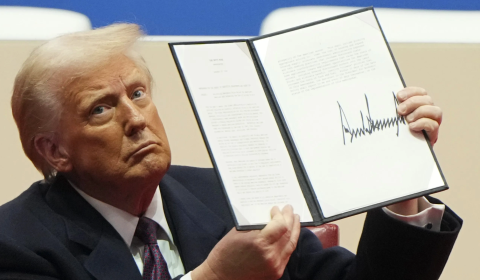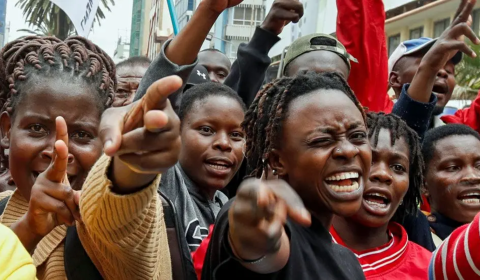Nations have committed to protecting a third of the planet for nature by 2030 in a ground-breaking agreement aimed at reversing decades of environmental destruction.
After four years of negotiations, repeated delays due to the pandemic, and a plenary that began on Sunday evening and lasted for more than seven hours, delegates from almost 200 nations at the ‘last chance’ COP15 conference in Montreal have reached a ‘historic’ deal to halt biodiversity loss.
Pledging that at least 30% of the world’s land, inland waters, coastal areas, and oceans will come under conservation by 2030, the ground-breaking agreement seeks to reverse decades of environmental destruction threatening the Earth’s species and ecosystems.
It comes amid plummeting insect numbers, acidifying seas overflowing with plastic waste, and the rampant overconsumption of the planet’s resources as the global population soars past eight billion.
Although the deal is not legally binding, leaders will be required to show their progress on meeting the targets with national biodiversity plans. If implemented, it could signal major changes to farming, business supply chains, and the role of Indigenous communities in conservation.
DEAL reached in the early hours at #cop15
It’s *far* from perfect, but we have a post-2020 Global Biodiversity Framework pic.twitter.com/8rZbnv9GQi
— Dr Galina Jönsson (@galinajonsson) December 19, 2022
Negotiated over a two week period, governments hope that the deal will put humanity on a path to living in harmony with nature by the middle of the century.
‘We are finally starting to forge a peace pact with nature,’ said UN Secretary General Antonio Guterres upon its finalisation.
‘Now it’s done, governments, companies and communities need to figure out how they’ll help make these commitments a reality,’ remarked Georgina Chandler, senior international policy advisor for the Royal Society for the Protection of Birds, in response.
According to the BBC, not only will the agreement maintain, enhance, and restore ecosystems, but it will also aim to prevent the human-caused sixth mass extinction event that scientists have been warning against for some time now.
In the early hours of the morning here in Montreal we gavelled Kunming-Montreal Global Biodiversity Framework. The ambitious framework can help us make peace with #nature. Now we deliver. Deep thanks to Chinese Presidency & host Canada for finding common ground #ForNature #COP15 pic.twitter.com/aqGGuJhf8w
— Inger Andersen (@andersen_inger) December 19, 2022
Other focal points include the ‘sustainable use’ of biodiversity (essentially ensuring that habitats are able to continue providing the services they do such as food and clean water); guaranteeing that the benefits of resources from nature like plant medicines are shared fairly; that indigenous peoples’ rights are protected; and ensuring that money is directed towards where it is most needed.
Regarding the latter, countries have decided to create a new fund within the UN’s main existing biodiversity financing mechanism and the world’s richest will deliver $30bn of aid for biodiversity by the end of the decade. This is believed to be a substantial increase on current levels.
‘Just six months ago, we didn’t know if we were going to even be able to have this conference and or even less to be able to adopt this historic document. And this was only possible through the collaboration of all countries present here tonight,’ said former activist turned Canadian politician, Steven Guilbeault.
‘It is truly a moment that will mark history as Paris did for climate.’
















